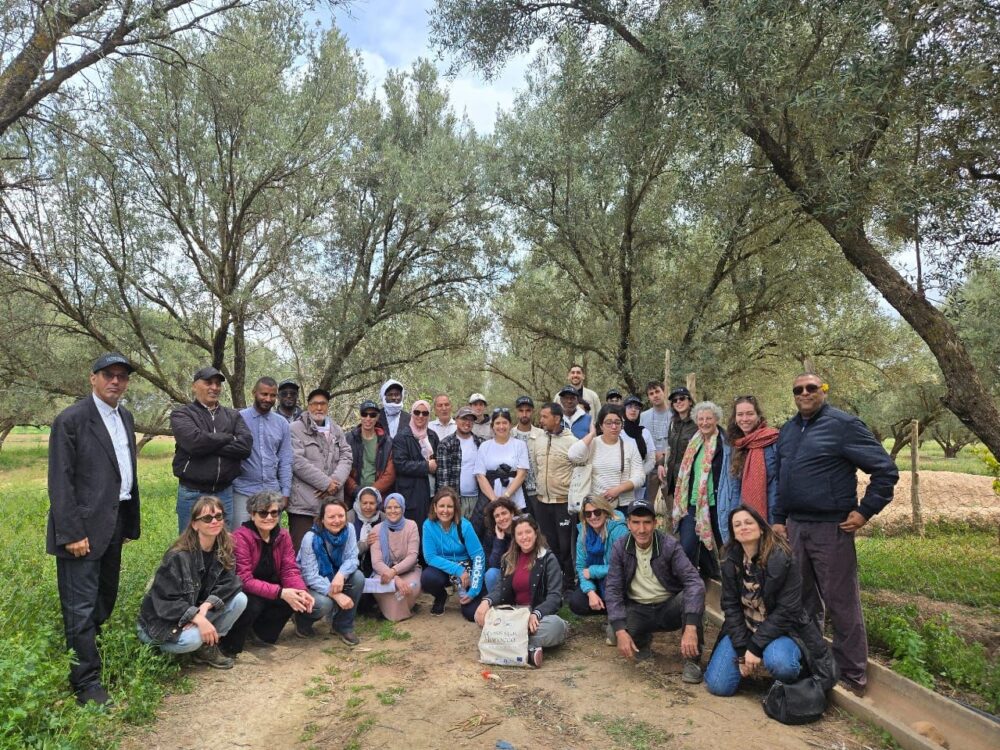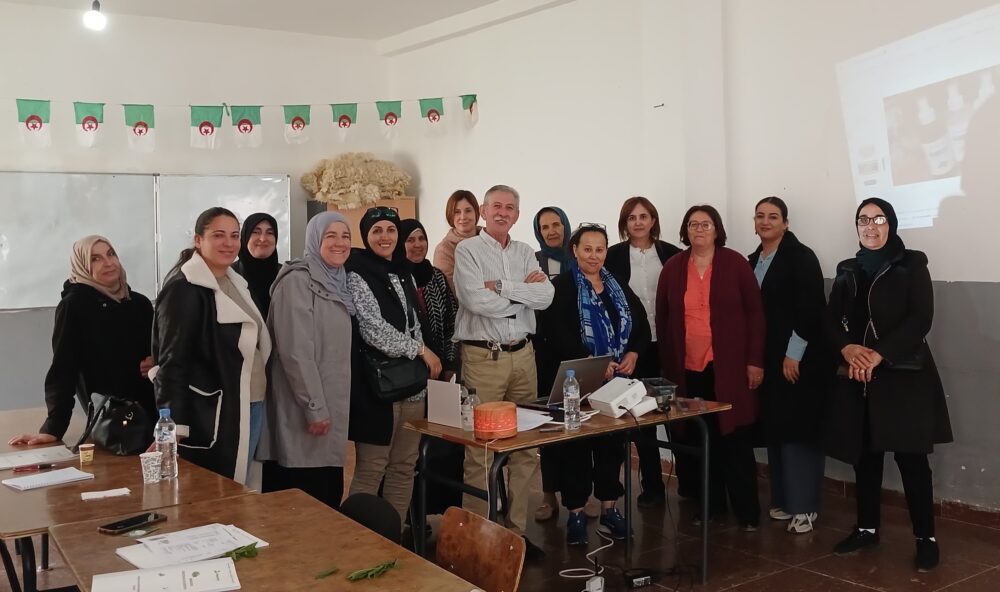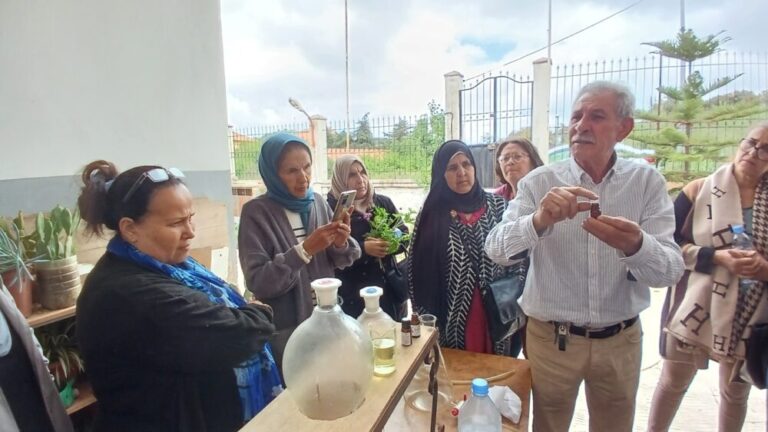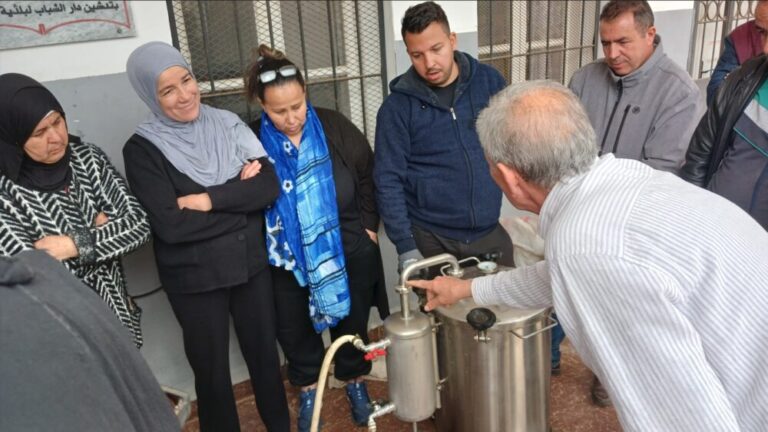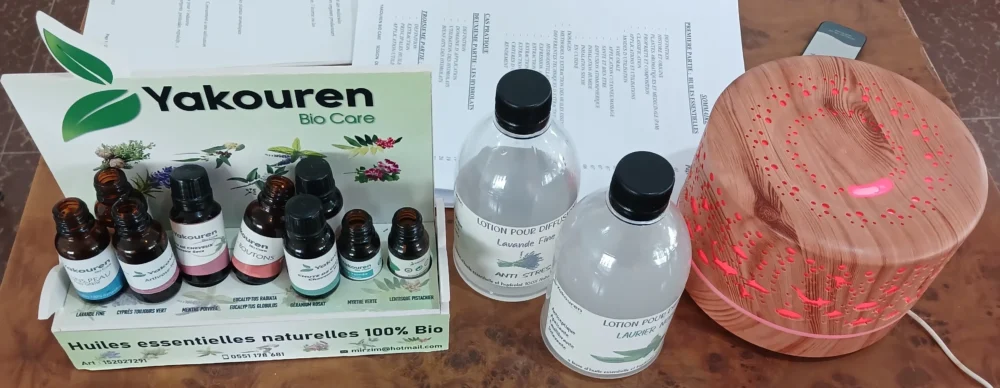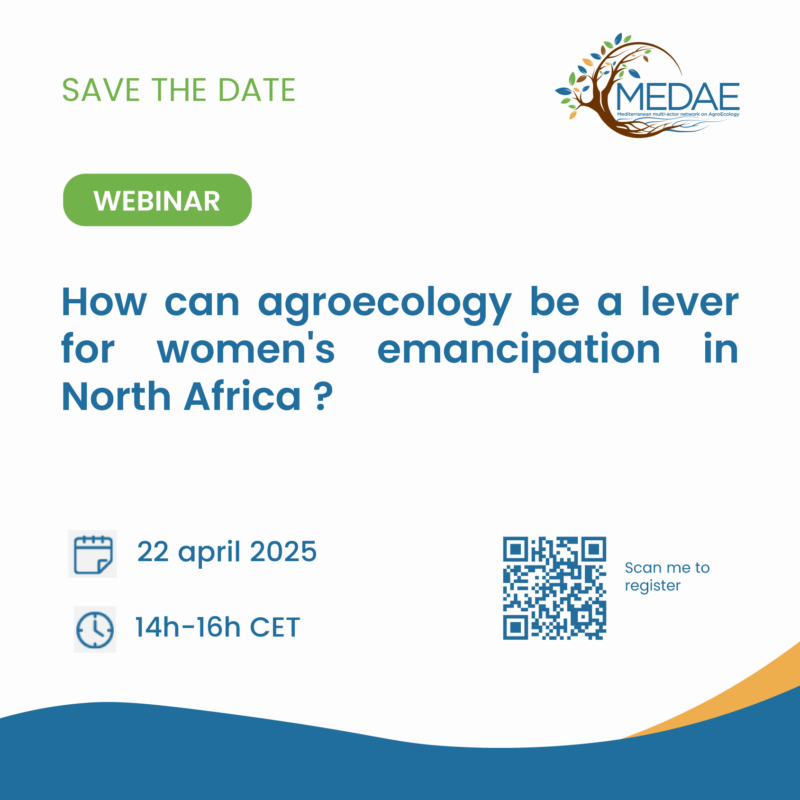From 5 to 8 April 2025, NSAM (National School of Agriculture in Meknes) hosted the third cross-visit organised as part of the NATAE project. Researchers and students from NSAM joined around twenty farmers, researchers and development workers from Tunisia, Mauritania, France, Italy and the Netherlands to discover the activities of the Skoura M’Daz living laboratory. The group of participants included representatives from the Siliana (Tunisia) and PK 17 (Mauritania) laboratories, as well as researchers from WUR, IAMM and IAMB.
Participants travelled to the province of Boulmane, in the eastern part of the Moroccan Middle Atlas, to discover the Skoura M’Daz laboratory located in a mountainous agroecosystem. The four-day visit was structured around two major issues:
(i) the conservation and adaptation of local knowledge and know-how as well as biodiversity;
(ii) the socio-economic inclusion of young people and women through the medicinal and aromatic plant (MAP) sector.
In addition to the visits of several farms and cooperatives involved in the development and marketing of MAP, the participants also visited NSAM’s AgriTech platform, dedicated to the development and demonstration of low-tech agricultural tools, and were able to explore the Ait Otmane living laboratory, located in a peri-urban area and also set up as part of the NATAE project. At the end of each day, times for discussion and feedback were organized in order to enable participants to look back on what they had seen and learnt, and to highlight similarities and differences in relation to their own experiences and experiments in their laboratories.
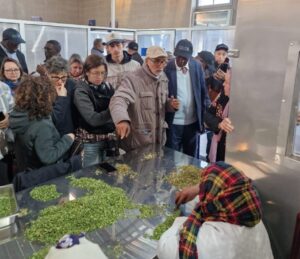
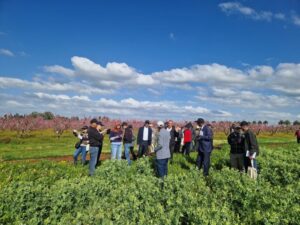
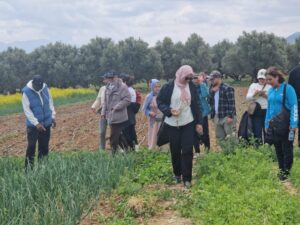
(i) Conservation and adaptation of local knowledge, know-how and biodiversity
The various visits and discussions highlighted the fact that local knowledge and know-how relating to the use and development of local biodiversity can improve crop resilience and help to maintain yields, particularly in the context of climate change. These practices include direct seeding, crop rotation and diversification, independent seed production and the use of rational irrigation techniques. The people we met all take a keen interest in the intergenerational transmission of knowledge and are adding to this heritage by gradually introducing new agroecological practices or new crops (saffron, lavender, fenugreek, etc.) into their production systems.
(ii) Socio-economic inclusion of young people and women through the MAP sector
The two women’s cooperatives visited, the Ennahah cooperative in Ifrane and the Safirat Alachaab cooperative in Skoura, made a deep impression on the participants in the cross-visit because of their capacity to produce, develop and market MAP. By enabling their members to structure themselves and increase their income, these cooperatives represent genuine models of social and economic empowerment for rural women. Their collective, flexible and supportive nature means that income is distributed fairly and family responsibilities are taken into account for each member. In these two cooperatives, MAP were initially gathered in the surrounding forests, but faced with growing demand for certain plants and the increasing scarcity of several endemic species, the women organised themselves to grow MAP, either on plots belonging to the cooperative, or on their own plots. A number of needs emerged from discussions with these women, particularly in terms of training in the domestication of MAP and their vegetative and generative propagation. The cross-country discussions between the participants during the cross-visit revealed that, despite very different contexts, women’s cooperatives appear to be real levers for innovation, sustainability and inclusion.
The next and final cross-visit planned as part of the NATAE project will take place in November in Mauritania, in PK 17 laboratory. Located on the outskirts of the capital, Nouakchott, participants will discover what combinations of agroecological practices can be implemented in peri-urban environments.
